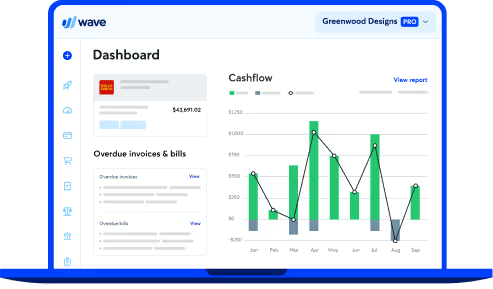
Five ways entrepreneurs can make relevant connections
When it comes to landing work, it’s often more about who you know than what you know. According to some recent research, up to 85% of jobs are filled through networking.
As a freelancer or small business owner, making connections is crucial to maintaining your client list and finding investors. But networking, especially at traditional, face-to-face networking events, can be intimidating. And as a busy entrepreneur, you want to make sure you’re spending your time doing the right kind of networking—after all, your time is valuable and every event needs to earn its place in your calendar.
To help you get the most out of your networking time, we’ve compiled some advice to help you get started.
1. Get online and connect with influencers
Although most traditional networking has happened offline, more entrepreneurs are making connections online as well. And social media platforms are great places to connect with potential customers and influencers online.
The broach reach of the major social media networks can’t be ignored. The average American uses between three and eight of these social platforms. And according to recent data from the Pew Research Center, approximately three-quarters of Facebook users and around six-in-ten Snapchat and Instagram users visit each site daily.
Because LinkedIn is specifically designed for professionals, it’s a solid place to start building your online presence. Take the time to keep your profile up to date, add work samples, and fill out your work history so that anyone who views your profile will see that you’re a seasoned pro.
To further demonstrate your knowledge (and establish yourself as an influencer), consider creating content that’s relevant to your business or industry to post on your LinkedIn feed. For example, if you’re a freelance SEO expert, you might post a quick opinion piece on recent Google algorithm changes and how they’ll affect your target client base.
While LinkedIn is a great place to start your online networking efforts, it isn’t the only social media platform you should lean on for this purpose. There are a number of other online communities you can use to connect with influencers and meet potential customers, including:
- Private Facebook groups: With thousands of niche Facebook groups covering an infinite number of topics, there’s likely a handful of groups targeting your specific industry. For example, running a quick search for “freelance marketers” unearthed dozens of groups covering topics ranging from free training courses to an evolving list of relevant Fiverr gigs. And in addition to industry-specific groups, you can also join general groups to connect with fellow freelancers or small biz owners. You can find potential overflow work, ask other pros questions about your biz, and get support for specific problems.
- LinkedIn groups: LinkedIn’s online communities are also great resources for networking. While these groups don’t cover topics as broadly as Facebook, LI groups can be useful to connect with influencers, read hot takes on current events in your industry, and to promote your own content and brand.
- Twitter: Yes, this OG social platform is still an effective way to network online. Strike up a conversation with influencers in your niche (I find it much less intimidating to do this on Twitter rather than in person). Or you can use hashtags to keep an eye on what topics are trending in your niche.
- AngelList: If you’re looking to specifically meet investors, this is one of the best social platforms to join. Create a profile for your small business and use it to link up with potential financiers.
2. Find local freelancer meetups and events
While we live in an increasingly digital world, face-to-face networking is often still the preferred (and most effective) way to connect. More than two-thirds (68%) of entry-level professionals value face-to-face networking more than online.
So, while it’s important to keep your LinkedIn profile up to date, meeting people in the real world is a great way to connect and build relationships with fellow freelancers, business owners, and potential clients.
To find the perfect place to hobnob with like-minded entrepreneurs and clients, try doing a quick search of upcoming public Facebook Events and Meetups. Search by city to check for any regularly held mixers for entrepreneurs and business owners.
You can also attend local freelancer events. These gatherings are a chance to connect with fellow entrepreneurs, but also a great opportunity to nab some overflow work. Because seasoned freelancers sometimes get more client queries than they can handle, connecting with these fellow pros gives you the opportunity to pick up any slack.
When you find the right events to attend, go old-school with your contact info. Come ready with a stack of business cards and an elevator pitch explaining what you do.
3. Try a trade show
Whether you freelance or run a small business, you likely have a niche. And one way to connect with influencers in your chosen industry is through trade shows.
You can go to a trade show either as a vendor or as a regular attendee. And while prepping for a trade show can be a lot of work (designing and setting up a branded booth or display is no joke), these industry events offer a unique opportunity to boost brand awareness, network with movers and shakers in your niche, and nab some customer leads.
That’s because the booming trade show industry draws in influencers and attendees with serious buying power. Data shows that 81% оf trаdе ѕhоw attendees hаvе buуіng аuthоrіtу. And visitors are often there to learn more about different brands. The majority (65%) of attendees said trade shows give them a greater understanding of a product or service.
4. Join a co-working space
More shared workspaces are popping up in cities all over the world. In the U.S. alone, co-working spaces now account for 27 million square feet of office space. There are more than 14,000 co-working spaces currently in existence, and the number of professionals expected to use co-working spaces is forecasted to hit 3.8 million by 2020.
These shared spaces boast a number of benefits, the least of which is offering a physical workspace for freelancers and small business owners. Joining a co-working space also offers entrepreneurs the chance to connect with other professionals.
Not only do you often work elbow-to-elbow with other freelancers and small businesses, but many co-working spaces offer lunches, Friday beers and beverage mixers, and other events to help their members network with one another.
5. Follow up with those new contacts
Whether you’ve made new connections via URL or IRL, it’s crucial to follow up with them. While this can be a tedious process, take the time to thumb through that stack of business cards you’ve collected from freelancer meetups and shoot those new connections a request to connect on LinkedIn. But don’t send a default message; take the time to write a personalized note including details about where you met.
For the connections you meet online, whether that’s on social media, through your website, or otherwise, move the conversation forward. Connect on LinkedIn or via email to discuss potential collaborations, projects, or client work.
Getting started with making new connections
Although networking may sound like an old-fashioned way to make connections, making new connections is as relevant today as it ever was.
And now that you have a firm grasp of a few of the ways you can connect both in-person and online, you can move forward with networking to boost your business.
(and create unique links with checkouts)
*While subscribed to Wave’s Pro Plan, get 2.9% + $0 (Visa, Mastercard, Discover) and 3.4% + $0 (Amex) per transaction for the first 10 transactions of each month of your subscription, then 2.9% + $0.60 (Visa, Mastercard, Discover) and 3.4% + $0.60 (Amex) per transaction. Discover processing is only available to US customers. See full terms and conditions for the US and Canada. See Wave’s Terms of Service for more information.
The information and tips shared on this blog are meant to be used as learning and personal development tools as you launch, run and grow your business. While a good place to start, these articles should not take the place of personalized advice from professionals. As our lawyers would say: “All content on Wave’s blog is intended for informational purposes only. It should not be considered legal or financial advice.” Additionally, Wave is the legal copyright holder of all materials on the blog, and others cannot re-use or publish it without our written consent.


























